
Love Story is a 1970 American romantic drama film written by Erich Segal, who was also the author of the best-selling 1970 novel of the same name. It was produced by Howard G. Minsky and directed by Arthur Hiller and starred Ali MacGraw and Ryan O'Neal, alongside John Marley, Ray Milland, and Tommy Lee Jones in his film debut in a minor role.

Charles Patrick Ryan O'Neal is an American actor and former boxer. He trained as an amateur boxer before beginning his career in acting in 1960. In 1964, he landed the role of Rodney Harrington on the ABC nighttime soap opera Peyton Place. It was an instant hit and boosted O'Neal's career. He later found success in films, most notably Love Story (1970), for which he received Academy Award and Golden Globe nominations as Best Actor, Peter Bogdanovich's What's Up, Doc? (1972) and Paper Moon (1973), Stanley Kubrick's Barry Lyndon (1975), Richard Attenborough's A Bridge Too Far (1977), and Walter Hill's The Driver (1978). From 2005 to 2017, he had a recurring role in the Fox television series Bones as Max, the father of the show's protagonist.

Farrah Leni Fawcett was an American actress. A four-time Primetime Emmy Award nominee and six-time Golden Globe Award nominee, Fawcett rose to international fame when she played a starring role in the first season of the television series Charlie's Angels.
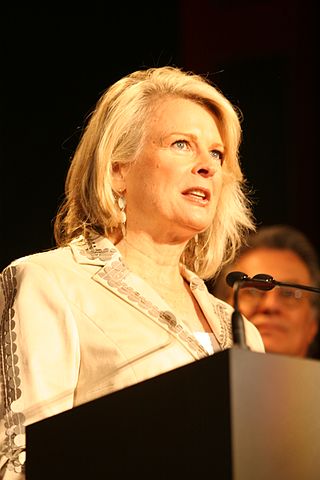
Candice Patricia Bergen is an American actress. She won five Primetime Emmy Awards and two Golden Globe Awards for her portrayal of the title character on the CBS sitcom Murphy Brown. She is also known for her role as Shirley Schmidt on the ABC drama Boston Legal (2005–2008). In films, Bergen was nominated for the Academy Award for Best Supporting Actress for Starting Over (1979), and for the BAFTA Award for Best Actress in a Supporting Role for Gandhi (1982).

The Bad News Bears is a 1976 American sports comedy film directed by Michael Ritchie and written by Bill Lancaster. It stars Walter Matthau as an alcoholic ex-baseball pitcher who becomes a coach for a youth baseball team known as the Bears. Alongside Matthau, the film's cast includes Tatum O'Neal, Vic Morrow, Joyce Van Patten, Ben Piazza, Jackie Earle Haley, and Alfred W. Lutter. Its score, composed by Jerry Fielding, adapts the principal themes of Bizet's opera Carmen.
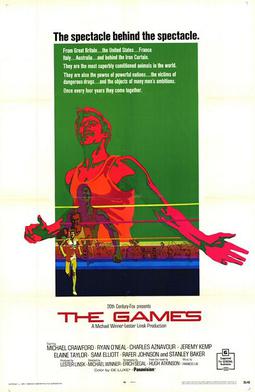
The Games is a 1970 British sports drama film directed by Michael Winner. It is based on the 1968 Hugh Atkinson novel and adapted to the screen by Erich Segal. The plot concerned four marathon competitors at a fictitious Olympic Games in Rome, played by Michael Crawford, Ryan O'Neal, Charles Aznavour and Athol Compton. Elton John recorded one song for the soundtrack.

Erich Wolf Segal was an American author, screenwriter, educator, and classicist who wrote the bestselling novel Love Story (1970) and its hit film adaptation.

Francis Albert Lai was a French composer, noted for his film scores. He won the 1970 Oscar for Best Music, Original Score and the Golden Globe Award for Best Original Score for the film Love Story. The soundtrack album went to No. 2 in the Billboard album charts and the film's theme, "Where Do I Begin", was a hit single for Andy Williams.

Moment by Moment is a 1978 American romantic drama film written and directed by Jane Wagner and starring Lily Tomlin and John Travolta. It was produced by Robert Stigwood and released by Universal Pictures on December 22, 1978.

Bonwit Teller & Co. was an American luxury department store in New York City, New York, founded by Paul Bonwit in 1895 at Sixth Avenue and 18th Street, and later a chain of department stores.

The Thief Who Came to Dinner is a 1973 American comedy film directed by Bud Yorkin. Based on the novel by Terrence Lore Smith, the film stars Ryan O'Neal and Jacqueline Bisset, with Charles Cioffi, Warren Oates, and in an early appearance, Jill Clayburgh.
"Love means never having to say you're sorry" is a catchphrase based on a line from the Erich Segal novel Love Story and was popularized by its 1970 film adaptation starring Ali MacGraw and Ryan O'Neal. The line is spoken twice in the film: once in the middle of the film, by Jennifer Cavalleri, when Oliver Barrett (O'Neal) apologizes to her for his anger; and as the last line of the film, by Oliver, when his father says "I'm sorry" after learning of Jennifer's death. In the script, the line is phrased slightly differently: "Love means not ever having to say you're sorry."

Frances Bergen was an American actress and fashion model. She was the wife of ventriloquist Edgar Bergen and the mother of actress Candice Bergen and film and television editor Kris Bergen.
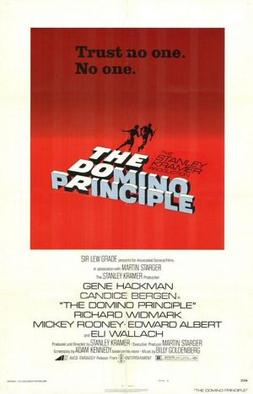
The Domino Principle is a 1977 neo-noir thriller film starring Gene Hackman, Candice Bergen, Mickey Rooney and Richard Widmark. The film is based on the novel of the same name and was adapted for the screen by its author Adam Kennedy. It was directed and produced by Stanley Kramer.

Love Story is a 1970 novel by American writer Erich Segal. Segal wrote a screenplay that was subsequently approved for production by Paramount Pictures. Paramount requested that Segal adapt the story into a novel as part of the film's marketing campaign. The novel was released on February 14, 1970, along with segments of the story which appeared in The Ladies' Home Journal. Love Story became the top-selling work of fiction for the duration of 1970 in the United States and was translated into more than 20 languages. The novel stayed on The New York Times Best Seller list for 41 weeks, and peaked at number one. The film was released on December 16, 1970.
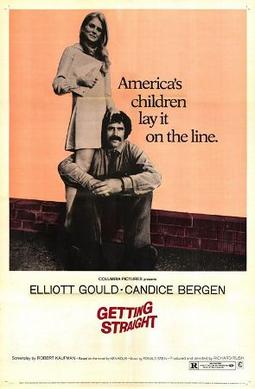
Getting Straight is a 1970 American comedy film motion picture directed by Richard Rush, released by Columbia Pictures.
Lee Elwood Holdridge is a Haitian-born American composer, conductor, and orchestrator. A 18-time Emmy Award nominee, he has won two Primetime Emmy Awards, two Daytime Emmy Awards, two News & Documentary Emmy Awards, and one Sports Emmy Award. He has also been nominated for two Grammy Awards.
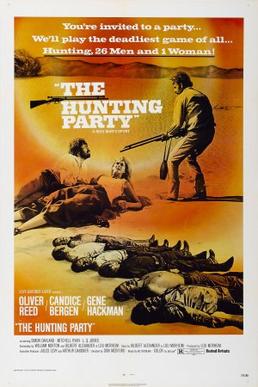
The Hunting Party is a 1971 American-British western film directed by Don Medford for Levy-Gardner-Laven and starring Oliver Reed, Gene Hackman, Candice Bergen, Simon Oakland and Ronald Howard.

Green Ice is a 1981 British adventure film starring Ryan O'Neal. It was also released under the name Operation Green Ice.

















